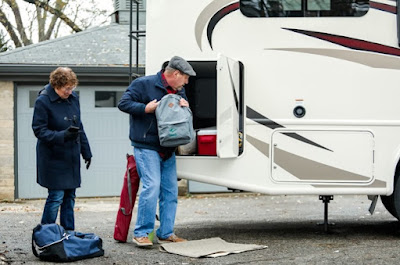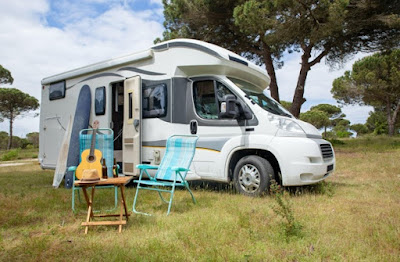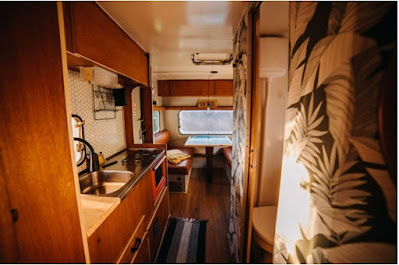Are you an avid RV enthusiast who loves hitting the open road and exploring new destinations? Your RV stabilizer jacks play a crucial role in ensuring a safe and stable camping experience. But how do you know when it's time to replace them?
In this article, we'll uncover the five telltale signs that indicate it's time to upgrade your RV stabilizer jacks. From safety concerns to wear and tear issues, understanding these signs will help you maintain optimal stability and enjoy worry-free adventures on the road.
The Importance of Stabilizer Jacks for Your RV
Stabilizer jacks are a vital component of your RV's leveling and stabilization system. They play a crucial role in providing a solid foundation, minimizing movement, and reducing the risk of accidents or injuries when camping.
When properly deployed, stabilizer jacks help distribute the weight of your RV evenly, preventing excessive rocking and swaying. This not only improves your overall comfort inside the vehicle but also ensures proper functioning of plumbing and other aspects of your RV.
By stabilizing your RV, these jacks create a stable and secure environment, allowing you to move freely without the constant worry of unsteady footing or objects shifting inside.
5 Signs of Faulty RV Stabilizer Jacks
1. Unstable and Shaky RV Setup
An unstable and shaky RV setup could be an indicator that your stabilizer jacks need replacement. If you notice excessive movement and rocking even after setting up your jacks properly, it's time to take action. This instability can be caused by worn-out or damaged jacks that no longer provide the necessary support.
For example: Imagine arriving at your campsite and setting up your RV, only to find that it wobbles every time you move inside. Despite adjusting the stabilizer jacks, the shaking persists.
This not only compromises your comfort but also poses a safety risk. By replacing your worn-out stabilizer jacks, you can restore stability and eliminate the unsettling sway.
2. Visible Damage or Corrosion
Inspecting your RV stabilizer jacks regularly is essential to identify visible signs of damage or corrosion. Exposure to various weather conditions, road debris, and general wear and tear can take a toll on your jacks over time. Cracks, bent components, or significant rusting are clear indications that replacement is necessary.
If, for example, during a routine inspection, you notice deep rust spots and cracks on the legs of your stabilizer jacks. The corrosion has weakened the structural integrity of the jacks, compromising their effectiveness. By promptly replacing them, you prevent further damage and ensure a secure and stable setup for your RV.
3. Difficulty Operating the Jacks
If you find it increasingly difficult to operate your RV stabilizer jacks, it's a sign that they may be nearing the end of their lifespan.
Stiff or jammed jacks can make the setup process frustrating and time-consuming, impacting your overall camping experience.
Let's say you're preparing to level your RV at a new campground, but your stabilizer jacks refuse to extend smoothly. Despite applying lubricant, they still get stuck and require excessive effort to operate.
This not only delays your setup but also adds unnecessary stress. Upgrading to new, properly functioning stabilizer jacks ensures hassle-free operation and a smoother camping experience.
4. Excessive Noise and Vibration
Are your RV stabilizer jacks making unsettling noises or causing excessive vibrations? It's a sign that they may be reaching the end of their lifespan.
Excessive noise and vibration indicate worn-out components, loose fittings, or insufficient cushioning, diminishing their effectiveness in providing stability.
As you lower your stabilizer jacks, do you notice loud creaking sounds and vibrations throughout your vehicle?
The noise is not only disruptive but also a cause for concern. By replacing your worn-out jacks, you can eliminate the noise and vibrations, ensuring a peaceful and enjoyable camping experience.
5. Outdated Jacks and Advancements in Technology
RV stabilizer jack technology has evolved over the years, with new features and advancements designed to enhance stability and ease of use. If your stabilizer jacks are outdated and lack these modern features, it may be time to consider an upgrade.
If, for example, you've noticed the latest stabilizer jacks that boast innovative technologies such as remote control operation or self-leveling capabilities, and you realize that your current jacks lack these convenient features and are becoming increasingly cumbersome to use. This could be a sign that it's time for a change.
By embracing the advancements in RV stabilizer jacks, you can elevate your camping experience and enjoy the benefits of cutting-edge technology.
Elevate Your RVing Experience with New RV Stabilizer Jacks
Recognizing the signs that it's time to replace your RV stabilizer jacks is crucial for maintaining a safe and stable camping experience.
Unstable setups, visible damage, difficulty in operation, excessive noise and vibration, and outdated technology are clear indications that an upgrade is necessary.
At RVupgrades, we offer a wide range of high-quality RV stabilizer jacks that provide exceptional stability and durability. Upgrade your jacks today and embark on worry-free adventures, knowing that your RV is securely supported.









